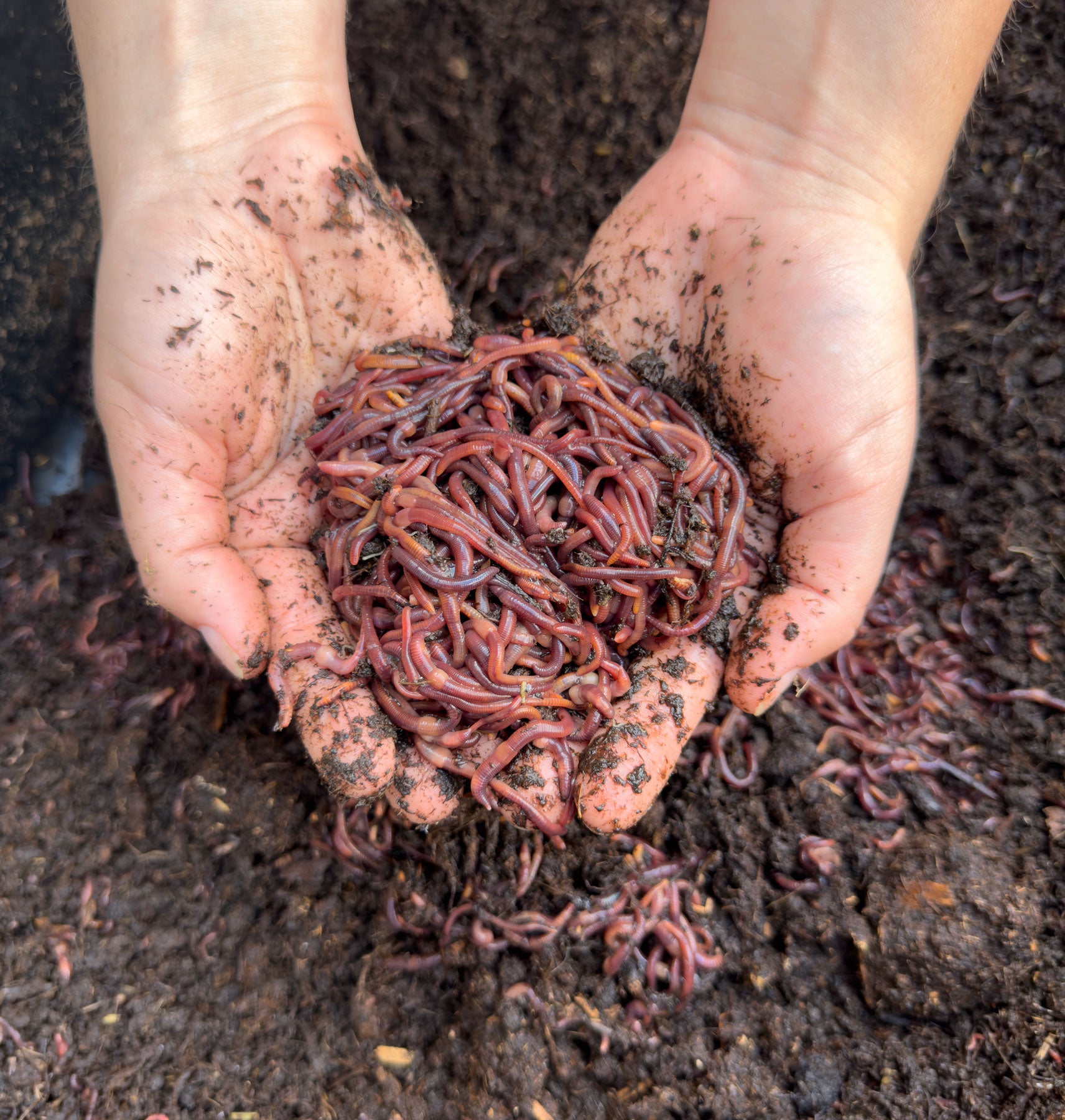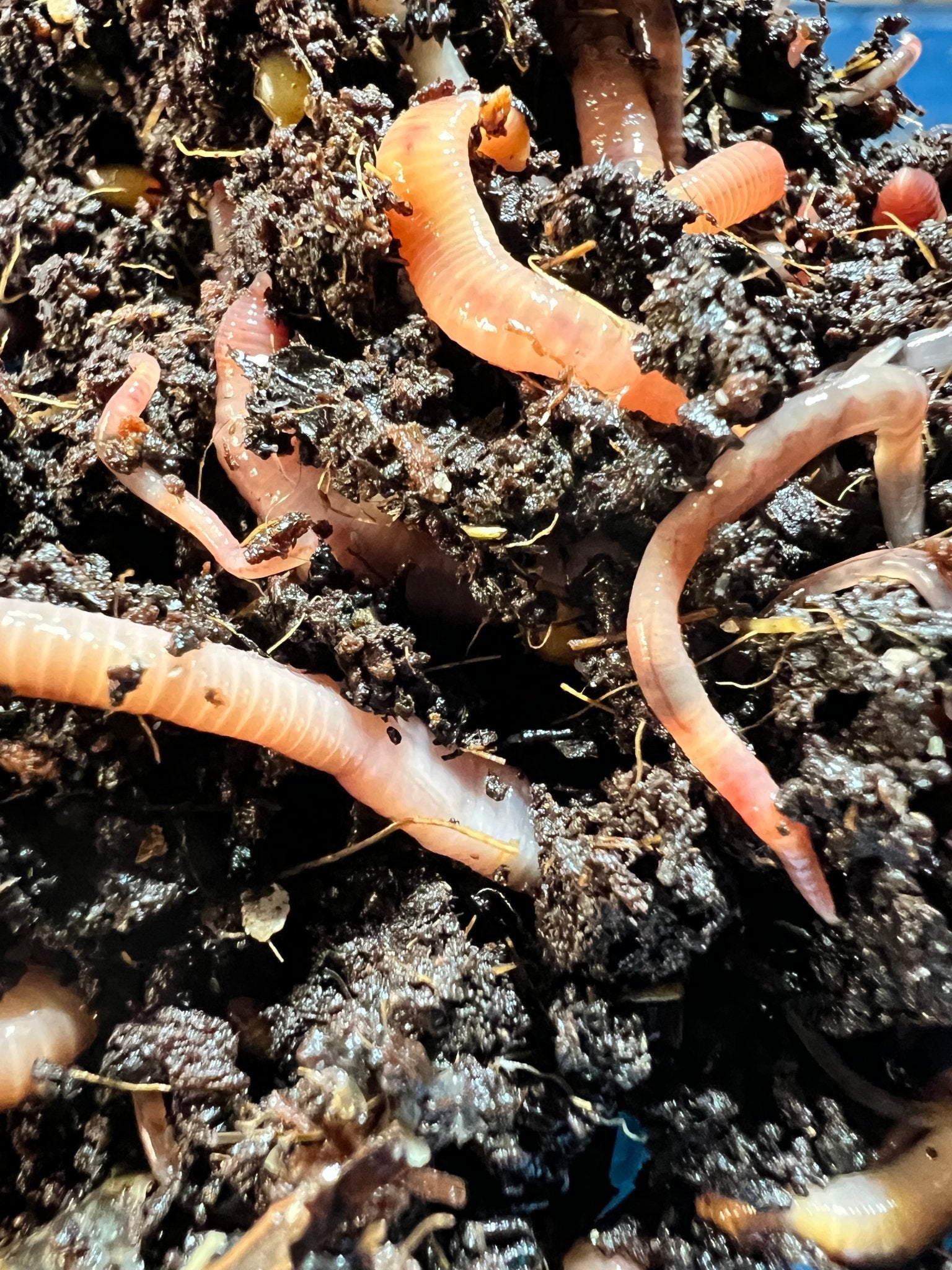Red Wiggler Worms Demystified: Unlocking the Secrets of Vermiculture for Greener Living and Nutrient-Rich Soil
In the realm of sustainable techniques for enhancing soil high quality and advertising eco-conscious living, red wiggler worms play a critical yet commonly neglected duty. Red Wiggler Worms. Understanding the complexities of caring for these worms, maximizing their environment, and utilizing their spreadings can lead to a greener way of living and much healthier soil for plants to prosper.
The Duty of Red Wiggler Worms
Red Wiggler worms play an important function in composting systems by successfully damaging down raw material right into nutrient-rich castings. These starved eaters take in a variety of natural materials, such as cooking area scraps, backyard waste, and paper items. As they feed, the worms' gastrointestinal processes damage down the raw material right into a fine, dark, and nutrient-dense material called worm castings or vermicompost.
The castings created by Red Wiggler worms are extremely advantageous for soil health and plant growth. They are abundant in crucial nutrients like potassium, nitrogen, and phosphorus, which are essential for sustaining healthy plant development. Additionally, worm spreadings include valuable germs and enzymes that help improve soil framework, boost water retention, and improve nutrient uptake by plants.
Advantages of Vermicomposting

In addition, vermicompost, the nutrient-rich end product of vermicomposting, functions as an excellent natural fertilizer and dirt conditioner. It improves soil framework, enhances soil aeration, and increases soil wetness retention. These homes contribute to healthier plants with more powerful origin systems and far better resistance to pests and diseases. Vermicompost additionally improves the soil with essential nutrients like potassium, phosphorus, and nitrogen, advertising plant development and total soil fertility.
Furthermore, vermicomposting assistances sustainable gardening practices by supplying a chemical-free and natural choice to synthetic fertilizers. Red Wiggler Worms. This eco-friendly technique not just enhances the dirt however also helps in reducing reliance on hazardous chemicals, promoting a greener and more lasting way of horticulture
Establishing Up a Worm Bin
When establishing a worm container for vermicomposting, appropriate configuration is crucial to guarantee the success of the composting process. The very first step in setting up a worm bin is choosing an appropriate container.
After including the bed linen, introduce the red wiggler worms to the container. It is advised to begin with a handful of worms and gradually enhance as they increase. The worms must after that be provided with food scraps such as fruit and vegetable next peels, coffee grounds, and eggshells. It is necessary to prevent including meat, dairy products, oily, or salted foods to stop bring in pests and creating unpleasant smells.
Consistently keep an eye on the wetness levels and temperature in the worm container to make sure optimal problems for the worms. With proper configuration and upkeep, the worm bin will successfully convert natural waste into nutrient-rich garden compost for your plants and garden.
Gathering Worm Spreadings
To successfully gather nutrient-rich worm spreadings from your vermicomposting system, a systematic harvesting technique is important. When it comes time to collect the worm castings, there are a couple of vital steps to comply with to make certain a successful procedure. Quit including fresh food scraps to one side of the worm bin for a couple of weeks before collecting. This urges the worms to migrate to the side with fresh bed linen and food, making it much easier to dig the spreadings from the opposite side.

Troubleshooting Common Issues
Determining and addressing usual difficulties that may emerge during the vermicomposting procedure is important for maintaining a healthy and balanced and effective worm bin. Including Get the facts excess food scraps can lead to a buildup of dampness and acidity in the worm container, potentially damaging the worms. One more concern is unpleasant smells emanating from the worm bin.
In addition, if the worm population is decreasing or the worms appear undesirable, it can be because of ecological stressors such as severe temperatures or pH levels. Keeping an eye on these aspects and making necessary modifications is essential for the wellness of visit the website the worms. By repairing these common problems without delay, vermicomposters can guarantee a effective and smooth vermicomposting process while maintaining a growing worm population.

Final Thought
In final thought, red wiggler worms play a vital duty in vermiculture by damaging down natural issue right into nutrient-rich soil. The benefits of vermiculture include greener living and improved dirt top quality. Establishing a worm bin is important for successful vermiculture, and collecting worm spreadings supplies useful compost for gardening. By comprehending and troubleshooting common concerns, people can unlock the secrets of vermiculture for sustainable living and healthier soil.
As they feed, the worms' gastrointestinal processes damage down the organic issue right into a fine, dark, and nutrient-dense product understood as worm castings or vermicompost.
The spreadings created by Red Wiggler worms are highly valuable for soil health and plant development. Adding excess food scraps can lead to a build-up of wetness and acidity in the worm container, potentially harming the worms.Additionally, if the worm populace is declining or the worms show up unhealthy, it can be due to environmental stress factors such as extreme temperature levels or pH levels. Setting up a worm container is vital for successful vermiculture, and harvesting worm spreadings provides useful garden compost for gardening.